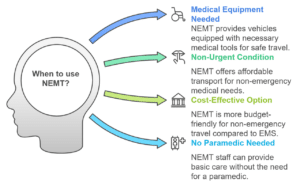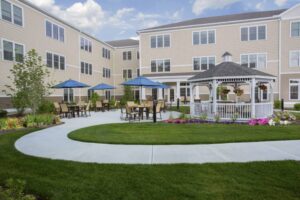
Organizations dedicated to senior care have rapidly adopted healthcare software, signaling an important shift towards more efficient and effective healthcare delivery. In 2023, 56% of healthcare providers named software and technology as one of their three top strategic priorities; up from 34% in the prior year and signaling an upward trend toward digitizing healthcare management.
Integrating cutting-edge technologies like artificial intelligence (AI) and big data analytics further amplifies this trend by providing more precise and predictable healthcare results. As healthcare demands continue to evolve, new advances help meet the complex requirements of senior care.
From managing multiple chronic conditions and tailoring interventions for specific scenarios to increasing diagnostic accuracy and personalizing care plans for elderly individuals, advancements help address all complexities of senior care.
Streamlining Administrative Processes
Healthcare software significantly eases administrative burdens in senior-focused organizations. Tools like electronic health records (EHR), hospital management systems (HMS), and personal health records (PHR) streamline operations by integrating all aspects of patient care from scheduling to billing. This not only helps streamline workflows but also minimizes the risk of human error.
This comprehensive integration not only saves time but also allows staff to focus more on patient care rather than administrative tasks. For example, patient health record software enables quicker access to patient histories, medication lists, and other critical health information, enhancing the accuracy and speed of healthcare delivery. Additionally, the automation of routine tasks reduces labor costs and improves operational efficiency, making these systems invaluable to healthcare providers.
Administrative dashboards that provide real-time insights into staff performance, patient flow, and resource availability further enhance operational oversight and decision-making. Efficient scheduling and resource allocation enabled by these systems further optimize the daily operations of healthcare facilities.
Enhancing Patient Care with Targeted Technology
The deployment of specialized software supports a more personalized approach to healthcare. Features such as telemedicine and remote patient monitoring meet the unique needs of seniors by offering regular health monitoring without frequent hospital visits. Telemedicine technology can especially benefit those living in rural or remote areas as it provides easier access to healthcare services and specialists. It is especially beneficial for those with mobility challenges or living alone in such locations.
Wearable technologies interfaced with this system also facilitate real-time data analysis which is crucial for managing chronic conditions effectively. Moreover, integration with these wearable devices can prompt automatic alerts to healthcare providers during a health crisis, facilitating immediate medical intervention. These systems also empower caregivers by providing them with access to real-time updates, improving collaboration between family members and medical professionals in managing a senior’s health.
Improving Data Management and Security
Data security and effective management are of utmost importance when managing sensitive information like the health records of senior citizens. Modern software solutions employ advanced security measures to guard against data breaches while complying with healthcare regulations such as HIPAA.
Adding blockchain technology enhances both transparency and security in handling health records; not only is patient data secure but it's readily available for authorized personnel for improved healthcare services responsiveness. Additionally, multi-factor authentication ensures even if external threats attempt to breach into systems, patient data remains safeguarded from threats. Regular audits and updates to these systems further fortify their defenses against emerging cybersecurity threats.
Fostering Better Patient Engagement
Modern healthcare software prioritizes improving patient engagement by simplifying how seniors interact with and manage their health. Tools such as patient portals provide straightforward access to personal medical records, enable easy appointment scheduling, and facilitate direct communication with healthcare professionals.
These features encourage greater independence and active participation in managing healthcare needs. Empowering patients in this way plays a critical role in enhancing health outcomes and satisfaction, as individuals who are more engaged are more likely to follow treatment plans and maintain consistent contact with their providers.
Providing resources tailored for seniors, including clear video demonstrations and user-friendly step-by-step instructions, further supports their ability to effectively use these platforms. Interactive tools and feedback systems within these portals can further encourage active participation by providing educational content and reminders for preventive measures.
Conclusion
Effectively incorporating healthcare software within senior-focused organizations streamlines operational workflows while markedly improving the standard of care delivered to older adults. As technological advancements continue to unfold, these organizations need to adopt innovative tools that address the intricate healthcare requirements of the aging population, ensuring care is delivered both efficiently and securely. Utilizing these systems also strengthens the relationships between seniors, their caregivers, and healthcare providers, fostering a collaborative and optimized care setting that better supports the needs of elderly patients.








